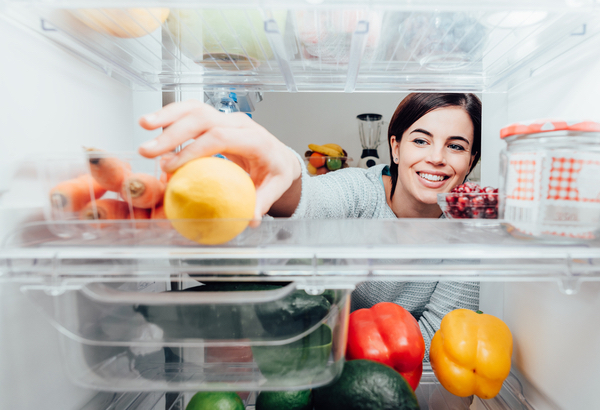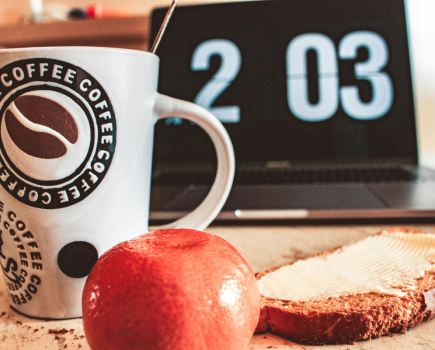With October marking National Cholesterol Month, health and nutrition experts explain why cholesterol isn’t all bad…
1) Only 20% of the cholesterol in your body comes from food
 Cholesterol is a substance made in the liver that’s vital to human life. You can also get cholesterol through foods. However, since it can’t be created by plants, you can only find it in animal products like meat and dairy.
Cholesterol is a substance made in the liver that’s vital to human life. You can also get cholesterol through foods. However, since it can’t be created by plants, you can only find it in animal products like meat and dairy.
The UK’s leading Nutritionist and author of The Natural Health Bible For Women, Dr. Marilyn Glenville (www.marilynglenville.com), explains the importance of cholesterol: “Your body needs cholesterol, that’s why it produces it. Your liver actually produces 80% of the cholesterol in your body, only 20% comes from your food.
Cholesterol is present in all your cell membranes; your body uses it to make sex hormones (like oestrogen) and stress hormones (like cortisol) and also needs cholesterol for the manufacture of bile and vitamin D. Your brain needs cholesterol; it is crucial for it to function properly. Cholesterol has got itself a bad name but it is essential for life.”
2) Cholesterol needs other substances to travel round your body
“The interesting thing about cholesterol is that it can’t travel around your body on its own. In order to get to your cells, it is carried in your blood by combining with a protein, called a lipoprotein (lipo stands for fat). It is the LDL (low-density lipoprotein, often called ‘bad’ cholesterol) that carries the cholesterol to our cells and then it is removed and taken back to the liver by HDL (high density lipoprotein, ‘good’ cholesterol). If you have too much LDL and not enough HDL then the cholesterol can be deposited on inflamed artery walls causing furring of the arteries which can lead to blocked arteries,” says Marilyn.
3) Eating eggs doesn’t increase your cholesterol
“Lowering your cholesterol levels via dietary means is not simply a matter of cutting out the cholesterol-containing foods. In fact, many studies have been carried out to show that eating a diet containing moderate amounts of cholesterol, for example eggs, is not associated with an increased risk of heart disease.”
The main dietary factors to consider in helping to lower cholesterol include the introduction of foods that will help to:
- Alter the type of cholesterol you have by increasing the HDL form. Do this by introducing foods such as garlic, soya and the good essential fatty acids.
- Remove excess cholesterol from the body by supporting the liver and improving digestion by increasing the amount of soluble fibre that you eat.
- Remove foods that may interfere with the regulation of cholesterol synthesis, which includes alcohol, caffeine and refined sugars.
4) Protect the cholesterol you do have from any damage
“Cholesterol in its own right is not dangerous; it is when it has been damaged by free oxidising radicals that problems occur,” says Marilyn. “Free oxidising radicals are natural by-products of energy production but these molecules can be neutralised by the presence of anti-oxidant nutrients such as vitamin A, vitamin E and vitamin C. It is therefore very important to make sure you include fresh fruits and vegetables into your daily diet or consider taking a good anti-oxidant supplement,” she says.
Top Tip: For a high-quality, pure, organic supplement, rich in vitamins, minerals and antioxidants, try taking Natures Plus Infinite Planet (£27.95): this multi-vitamin supports and sustains your optimal health, vitality and overall wellness.
5) Targeted supplements can lower LDL cholesterol
For those who are aware that they need to achieve healthier cholesterol levels, Nutritionist and Fitness Instructor Cassandra Barns, explains why it is so important to invest in a red yeast rice supplement.
“Red yeast rice is a natural substance created by fermenting red rice with a type of yeast called Monascus purpureus,” says Cassandra. “The fermentation process produces a substance called monacolin K, which has been found to help maintain healthy cholesterol levels. It may help lower both total and LDL (‘bad’) cholesterol.
Red yeast rice supplements are a popular choice among those who are trying to lower their cholesterol in a more natural way than via medication. Natures Plus’ Source of Life Garden Red Yeast Rice (£22.95) is a great organic and high-quality option.”
6) Snack on seaweed to reduce cholesterol
“This superfood contains protective ‘pro-heart’ nutrients that may reduce the risk of heart disease. Seaweed has been found to reduce cholesterol with newer studies showing seaweed contains carbohydrates or fucans and peptides that help reduce blood clotting and lower high blood pressure,” says nutritionist Alix Woods, working in collaboration with itsu, the healthy Asian-inspired eatery. For a seaweed-fuelled scrumptious lunch try itsu’s Mixed Sashimi (£9.99).







